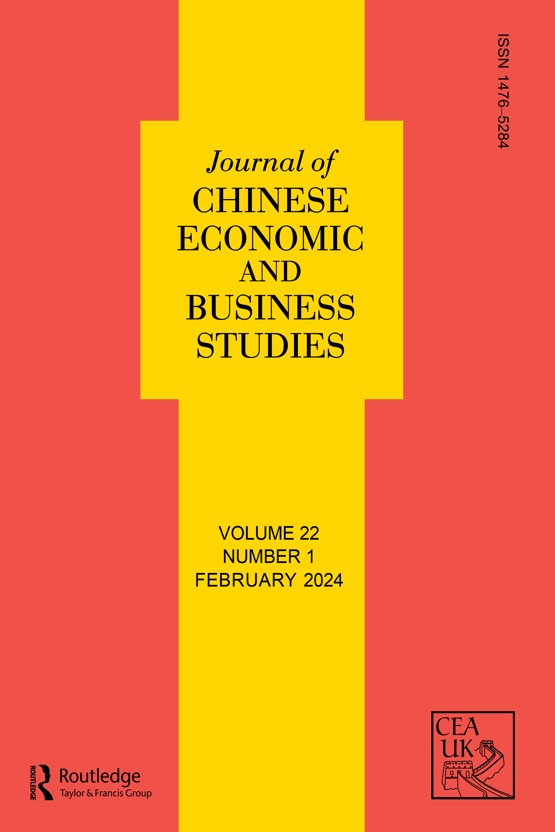Submit a Manuscript to the Journal
Journal of Chinese Economic and Business Studies
For a Special Issue on
Towards sustainable development goals SDGs: The potential of Islamic finance
Manuscript deadline
30 April 2024


Special Issue Editor(s)
Khoutem Ben Jedidia,
Manouba University,Tunisia,
[email protected]
Hichem Hamza,
King Abdulaziz University, KSA
[email protected]
Kaouther Toumi,
Paul Sabatier Toulouse III University, France
[email protected]
Mohamed Ghroubi,
Ez-zitouna University, Tunisia
[email protected]
Towards sustainable development goals SDGs: The potential of Islamic finance
Background to the Special Issue
The world is facing growing challenges as a consequence of increased conflicts, COVID-19, climate change, and ecological disasters. The compound impact of extreme climate change events and COVID-19 caused severe impacts on livelihoods (Walton et al, 2021) which leads to social and economic instabilities, energy and food crises, and an increasingly threatened environment.
In 2015, the United Nations Organization agreed upon a sustainable development agenda with a set of 17 sustainable development goals (SDGs) for the period 2016-2030. These goals are intertwined and balance the three dimensions of sustainable development: economic, social, and environmental (United Nations, 2015). They provide a shared blueprint for peace and prosperity for people and the planet, now and into the future, including ending poverty and hunger, ensuring healthy lives and equitable quality education, reducing inequalities, combating climate change and its impact, and protecting the environment. To respond adequately to SDGs, financing policies and investment strategies should be closely aligned with these goals.
Islamic finance philosophy is motivated by similar concerns with prioritizing human development and preservation (Khan, 2019, Asutay, 2019). Following Shari’ah law objectives, called Maqāṣid al-Sharīʿah, Islamic finance shares intrinsically similar values and ethics with sustainable development such as poverty reduction, equitable wealth distribution, social inclusion, and environmental protection (Al Ansari and Alanzarouti, 2020, Muhamad et al, 2022, Khan and Badjie, 2022). The International Islamic Fiqh Academy also calls for environment preservation (Resolution No. 185 (11/19) in 2009) and food and water security (Resolution No. 234 (5/24) in 2019). Accordingly, genuine Shari’ah-compliant Islamic finance could present great potential for contributing to achieving the SDGs. The Islamic finance industry, through its institutions (e.g., Islamic banks, Takaful companies, Waqf institutions (Endowment), Zakat funds) and Islamic financial markets (e.g., Green Sukuk, Social Sukuk, Islamic investment funds) could contribute to a more sustainable, inclusive, and resilient economy while avoiding deficiencies that exacerbate inequalities. Islamic social finance institutions can mobilize resources to support marginalized agents at both national and international levels (Tok et al, 2022). The Green Sukuk are also a quite new trend in the Islamic financial industry that could be an opportunity to mitigate global environmental risk (Paltrinieri et al., 2019). Islamic banks could further play a crucial role to contribute to SDGs. The Islamic banks in Saudi Arabia and the United Arab Emirates, for instance, are increasingly incorporating sustainability criteria into Islamic financing contracts. However, the majority of Islamic banks are still ignoring sustainability and SDGs issues (Othman, 2022).
Aims and Scope of the Special Issue
The purpose of this special issue is to compile articles focusing on how Islamic finance can contribute to mobilizing resources and supporting investments to achieve the SDGs. We invite researchers to discuss issues related to policy gaps to align Islamic financing and investments to SDGs, scarcity of SDGs-Shari’ah compliant investment opportunities, faith-driven investors’ behavior with respect to natural resources, human capital for SDGs in the Islamic finance industry, Shari’ah-decision processes and SDGs, etc.
Topics of this special issue may include, but are not limited to, the following themes:
- Islamic sustainable finance and SDGs
- Islamic social finance and SDGs
- Green finance, green Sukuk and SDGs
- Islamic entrepreneurship, Sustainopreneurship and SDGs
- Digital finance, Islamic fintech, Islamic crowdfunding and SDGs
- SDGs in the light of Maqāṣid al-Sharīʿah
- Sustainable regulation, standardization, risk management, and SDGs
- Accounting and Shari’ah standards and SDGs
- Islamic corporate governance, Shari’ah governance and SDGs
Conference
Scholars interested in the special issue could submit papers to the Tunisia International Conference on Islamic Economics and Finance TICIEF 2023 “Islamic Finance, Impact Finance, and Sustainable development”(Hammamet, Tunisia, May 13-14, 2023). Submissions are not limited to conference participants. Nevertheless, presentation at the conference does not guarantee final publication. All papers will be refereed anonymously.
Looking to Publish your Research?
Find out how to publish your research open access with Taylor & Francis Group.
Choose open accessSubmission Instructions
Instructions
Submitted manuscripts should not have been published previously, nor be under consideration for publication elsewhere.
All manuscripts are thoroughly refereed through a peer-review process.
Please visit the instructions for Authors page before submitting a manuscript